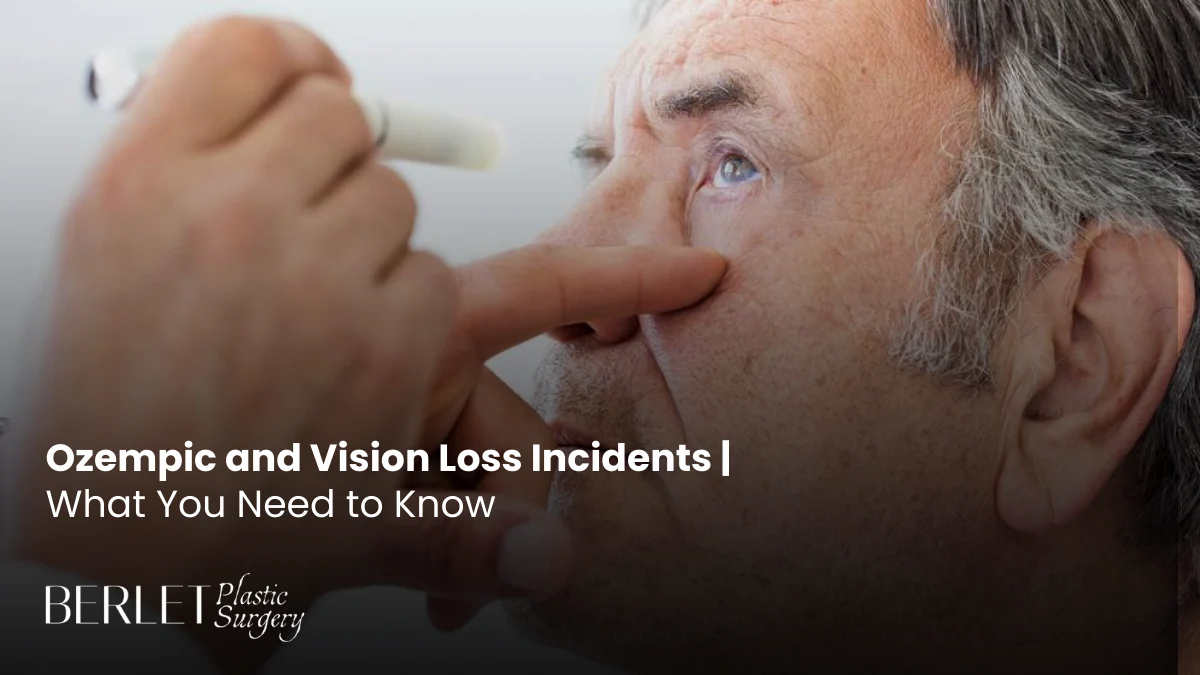A growing number of patients are raising alarms that popular weight-loss and diabetes medications—including Ozempic—may carry a devastating and little-known side effect: sudden, irreversible blindness.
One such patient is 62-year-old Maryland resident Todd Engel, who lost his vision after starting Ozempic to manage his diabetes. Todd and his wife, Shelley, recently shared their story in an exclusive report by WJLA Spotlight on America.
“It’s been catastrophic,” Todd explained. “I can’t drive. I lost my job. What I miss most is seeing my wife’s beautiful face every day. I’ll never be able to see her again.”
From Medication to Blindness: What Happened to Todd Engel
Todd’s vision loss began in his right eye just months after beginning Ozempic in September 2023. He was diagnosed with Nonarteritic Anterior Ischemic Optic Neuropathy (NAION)—a rare condition where blood flow to the optic nerve is blocked, causing permanent vision loss. According to Pharmaphorum, Todd initially stayed on the drug because he had no warning about the risk. Ten months later, he went blind in his left eye as well.
Emerging Science: Are Semaglutide Drugs Linked to NAION?
Semaglutide—the active ingredient in Ozempic, Wegovy, and Rybelsus—has been celebrated for its role in treating diabetes, obesity, and heart disease. But evidence is mounting that it may increase the risk of NAION.
- A 2024 study published in JAMA Ophthalmology, reported by Verywell Health, found a four times higher risk of NAION in diabetic patients taking semaglutide, and a seven times higher risk among obese patients.
- A Danish–Norwegian cohort study, also covered by Verywell Health, suggested the risk may be roughly double for diabetic patients on semaglutide.
While some studies show little or no increased risk, the findings have been significant enough to draw regulatory attention.
Regulatory Responses: Warnings at Last
In June 2025, the European Medicines Agency (EMA) concluded that NAION should be listed as a “very rare” side effect of semaglutide medications. According to Reuters, the EMA advised that patients who experience sudden vision loss or worsening eyesight should stop treatment immediately and seek medical advice.
The World Health Organization (WHO) also issued a safety alert, recommending that semaglutide’s risk management plans be revised to include NAION as a potential risk. According to the WHO report, this was based on emerging global safety signals and case reports.
Meanwhile, the U.S. FDA has launched a Sentinel safety study to investigate whether Ozempic and related drugs carry a significant blindness risk, as highlighted by WJLA.
Legal Action and Advocacy
Todd Engel is among nearly two dozen patients now suing Novo Nordisk, the maker of Ozempic. As reported by Medical Brief, the lawsuits claim the company failed to adequately warn patients of the risk of permanent blindness.
Attorney Grace Chandler argues that the current vague warning—about possible “vision changes”—is not enough. “This isn’t just blurry vision. This is permanent, irreversible blindness,” she told Spotlight on America.
Novo Nordisk Responds
Novo Nordisk denies any proven causal link between semaglutide and NAION. In a statement quoted by Reuters, the company emphasized that trial data do not support a connection and that “the benefit–risk profile of semaglutide remains favorable.” Still, Novo Nordisk has agreed to update product information in the EU in line with the EMA’s recommendation.
A Personal Appeal for Clearer Warnings
Despite adjusting their home with accessibility features like braille-style labels and voice-activated devices, the Engels say life has changed forever.
“I don’t want this to happen to anyone else,” Todd said. “It’s been devastating—not only for me, but for my family.”
Shelley added, “There’s no going back. He’s blind forever. Patients deserve clear warnings so they can make informed decisions.”




